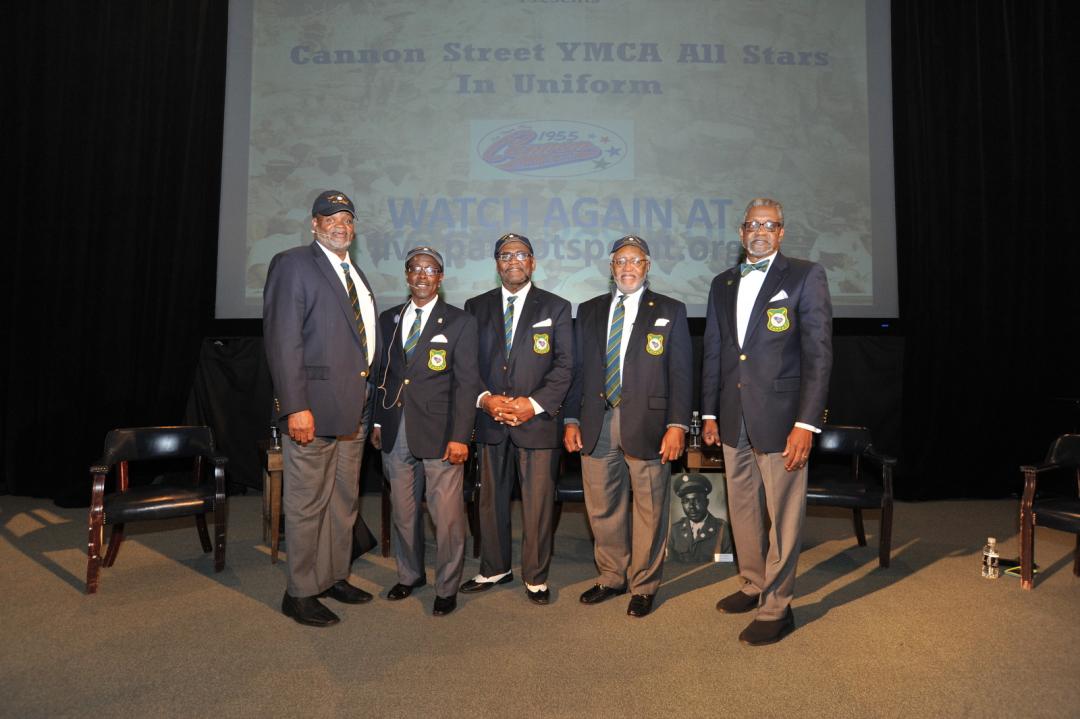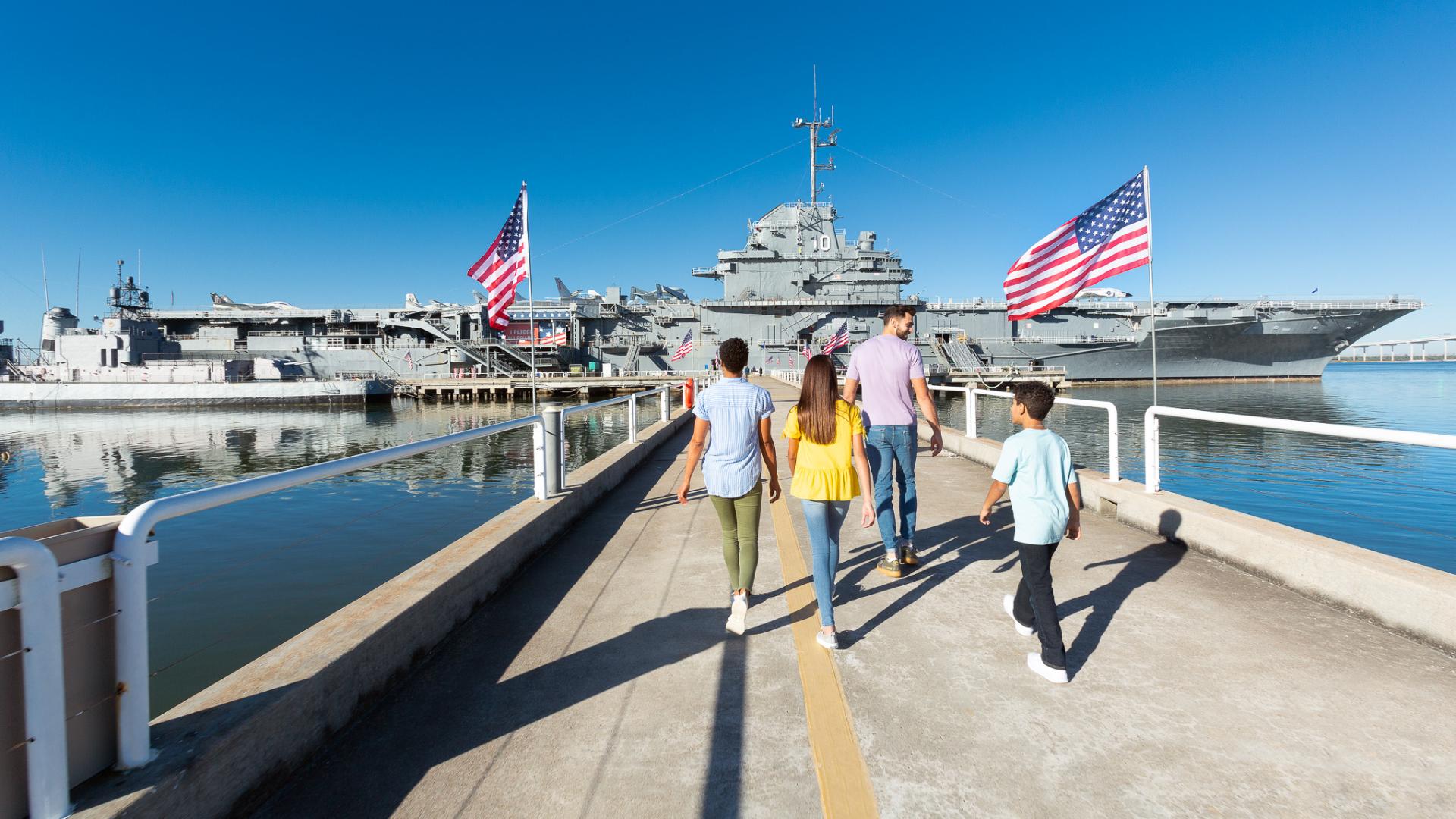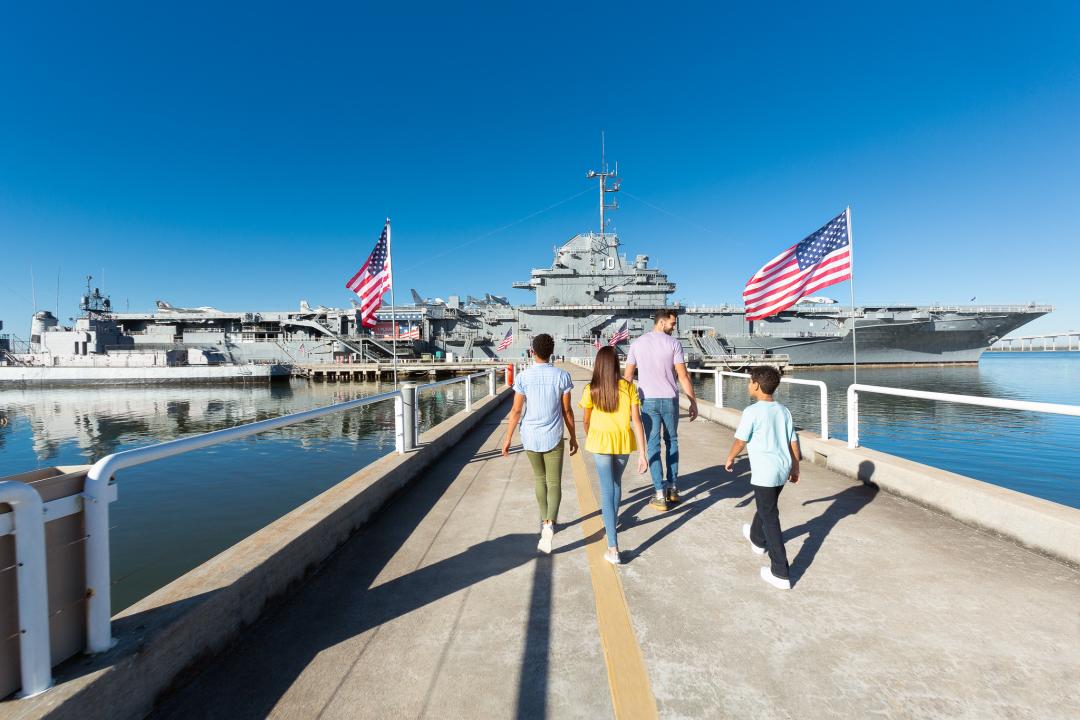On the morning of Thursday, February 11th, hundreds gathered on the USS Yorktown to hear the story of the 1955 Cannon Street YMCA All Stars from several members of that historic team. In that year, they were the only all-black team in the state Little League tournament and all 61 other teams refused to play them despite laws that called for integration.

Named the South Carolina Little League Champions by default, the Cannon Street All Stars were unable to play at the national level because rules required them to have played at the lower levels. Even so, they were invited to attend the Little League World Series in Pennsylvania and practiced on the field with other teams. For many years, Little League ceased to exist in South Carolina and was replaced by Dixie Youth Baseball.
Now 61 years later, they came to share their story as part of Black History Month at Patriots Point Naval & Maritime Museum. Local musicians Ann Caldwell and Lonnie Hamilton opened the symposium with a performance of the National Anthem. The former mayor of the city of Charleston, Joseph P. Riley, then came to the stage to talk about his memories of youth baseball in Charleston.
Like the boys on the team in 1955, Mayor Riley was also 12-years old that year. He talked of how he struggled to understand why segregation and racism were a part of the game he loved so much, but he has always admired how the members of the Cannon Street All Stars handled this adversity in their lives. As he said: “These men will always be heroes because of how they responded to unfairness and went on to live remarkable lives.”
As team president and shortstop John Rivers learned from the experience, “You must turn adversity around and make something positive of your life.” For two of the team’s pitchers, Leroy Major and Vermort Brown, that meant joining the military and being willing to die for a country that didn’t fully accept them as equal citizens.
The memories of that time have always stayed with them. Their greatest memory from the Little League World Series was being able to take the field and practice with all of the other teams. “We took the field on Championship Day and handled the ball like professionals. Everyone noticed. Just before we left the field, the chant started: ‘Let them play!’” In the audience at the symposium, the same chant rang out again and it brought tears to the eyes of the former players.
Augustus Holt, the team’s historian who served in the U.S. Army, talked about leading the charge in 1994 to reinstate Little League on peninsular Charleston after refusing to allow his son to play on the rec team that was associated with Dixie Youth Baseball. “I looked at that rule book with a confederate flag on the cover and told my son, ‘If we have to play baseball in the backyard with a stick, we aren’t playing Dixie Baseball,’” recalled Holt.
Holt’s work to bring back Little League after a 40-year absence was yet another positive change rooted in the story of the 1955 Cannon Street All Stars. Many who attended the symposium, including school groups from three local schools had never before heard the story of this Little League team, but left with a greater understanding of their perseverance and their lasting impact on society.
Check out these photos from the symposium:
[gallery size="medium" columns="2" ids="6902,6901,6903,6908,6907,6909,6910,6900,6906,6905,6904,6911"]

